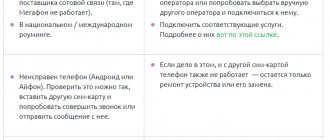Megafon is the largest Russian telecommunications company that provides cellular and local telephone services. Who owns Megafon, who are its owners, shareholders, where did it all begin? There are various rumors about this. Let's dispel all speculation, make historical inquiries and figure out who really runs such a large organization.
Khachatur Pombukhchan and Magnit
Khachatur Pombukhchan worked for a long time at the Magnit retail chain and was considered a close associate of its founder and former head Sergei Galitsky , who before his marriage bore the surname Harutyunyan .
In 2008-2018 Pombukhchan was the financial director of Magnit. In 2018, after Galitsky left the company, he headed Magnit for some time, but then left the company. Then he was a member of the boards of directors (Azbuka Vkusa chain) and DTS Retail.
The new CEO of Megafon, Khachatur Pombukhchan, worked for a long time in the Magnit retail chain.
In 2021, Pombukhchan became a member of the board of directors of Megafon and at the same time took the post of deputy general director of USM Telecom, a structure of the USM holding, through which Alisher Usmanov owns Megafon.
At the end of 2021, the board of directors of Megafon approved the candidacy of Pombukhchan for the post of executive director of the company. In January 2021, the meeting of Megafon shareholders approved this decision. In this position, Pombukhchan was to be responsible for the development and improvement of business efficiency.
History of the creation and development of Megafon
Over almost 20 years of presence on the Russian market, Megafon has gone through a tremendous development path. Starting as a small regional operator, it has grown to become the largest leader among mobile operators in the Russian Federation. During this period, many changes occurred in the industry: technologies developed, customer needs changed. But Megafon was able to stay in first place thanks to a stable business model and a clear strategy. The company introduced innovative technologies, which ensured high competitiveness.
The company is represented in 83 regions of Russia. The number of its subscribers exceeds 80 million.
- 1992 For the first time they started talking about creating a company. The idea came to the head of the information and computing center of the Leningrad intercity telephone exchange, Alexander Malyshev, and the owner of the West Link company, Evgeniy Kesarev.
- 1993 An operator under the name “North-West GSM” was officially registered in St. Petersburg.
- 1994 The first call was made.
- 1995 Start of operation of commercial networks.
- 1996 The operator is the leader in the St. Petersburg market, and the number of subscribers is 24 thousand.
- 1997 The operator's services went beyond the region.
- 1999 The company provided Internet access using WAP technology and for the first time realized the possibility of transmitting data underground.
- year 2000. SIM cards have been sold in Saratov and Saransk. We connected the Saratov, Samara regions, Mordovia, Volgograd, Bashkortostan, Kalmykia, Astrakhan and Ulyanovsk.
- year 2001. Creation of a single operator providing services throughout the Russian Federation.
- 2002 The organization was named Megafon.
- 2005 year. The operator's subscribers have the opportunity to try EDGE technologies.
- year 2012. The stock exchanges of Moscow and London have added one more operator.
- 2016 Introduction of voice transmission services in VoLTE networks.
MegaFon will change its CEO
Pombukhchan became the general director of Magnit in February 2018, after the founder of the network, Sergei Galitsky, left this post, having sold his main stake to VTB Bank for 138 billion rubles. Galitsky immediately stepped down from managing the company, remaining a minority shareholder with a 3% stake. The top manager's contract stipulated that he would manage the company for at least three years.
After the deal, Magnit re-elected the board of directors: three candidates proposed by Galitsky were included, but Pombukhchan was not among them. In mid-May 2021, Magnit hired a new top manager: Olga Naumova, who headed Pyaterochka, the flagship chain of Magnit’s main competitor X5 Retail Group, was appointed executive director. Pombukhchan and Naumova held a joint press conference - they announced the retailer’s plans to regain leadership in revenue and double its market share in the next three to four years. However, a month later, following the results of the board of directors, it became known that Pombukhchan would cede the position of general director to Naumova and would leave. He announced that he intended to move on in order to be able to develop the acquired skills in new directions.
Read on RBC Pro
“He was fired, and he erased the entire database”: how ex-employees take revenge on employers
New RBC 500: the first rating of the Covid era
War and $24 billion: how one of Canada's richest clans perishes
How long will the ruble weaken? Economists' forecasts
As Pombukhchan explained to RBC, the shareholders set him the same task that they formulated when he was appointed to the post of executive director - improving the operational performance of the business. “The company prepares budget plans every three years, a new document is now being prepared, at the end of May we will have a meeting of the board of directors, I think at that moment there will be details,” he said.
The general director of the analytical agency TMT Consulting, Konstantin Ankilov, believes that changes in the work of the operator should not be expected, because the change of its general director was not spontaneous. “The company was systematically moving towards this, Khachatur Pombukhchan was being prepared for a smooth change of leadership,” Ankilov explained. According to the CEO of the analytical agency TelecomDaily Denis Kuskov, a new stage of the struggle for the client, for his loyalty, is now beginning, because for many years they have been saying that there are no new subscribers. “This requires new ideas,” Kuskov said.
What is Vermishyan remembered for?
Gevork Vermishyan headed MegaFon in November 2021. A three-year contract was signed with him. He joined the company in mid-2011 as CFO. Prior to this, since 2007, Vermishyan oversaw the corporate finance block at Sistema JSFC. And even earlier, he worked for five years at LUKOIL, his last position being deputy head of corporate borrowing in the department for work with banks and financial markets.
Under his leadership, the company delisted from the London Stock Exchange in 2021. At the same time, revenue] decreased[/anchor] from 335.55 billion rubles. at the end of 2021 to 332.16 billion rubles. in 2020. The subscriber base decreased from 76.9 million to 70.4 million customers. This is mainly explained by nominal reasons: in 2021 ] revised[/anchor] the subscriber accounting methodology, tightening the requirements for checking customer activity. As a result, MegaFon wrote off about 5 million SIM cards, the owners of which it previously considered active subscribers.
During his leadership from a classic telecom operator to a representative of a new industry,” the message quotes the words of the Chairman of the Board of Directors of MegaFon, Ivan Streshinsky. According to him, Khachatur Pombukhchan “will develop the company in the new conditions and realities in which the telecom finds itself after 2021,” he will continue to implement the strategy.
According to Kuskov, MegaFon worked last year amid the coronavirus pandemic “not as well as it could.” At the same time, Kuskov notes that under Vermishyan’s management the company has maintained technological leadership among operators in terms of communication quality and number of base stations. Among the major projects during this period, Kuskov recalled the creation of a joint venture based on AliExpress Russia with the Chinese Alibaba, Mail.ru Group and the Russian Direct Investment Fund (RDIF), as well as an agreement with the Finnish company Cinia to lay a fiber-optic cable along the bottom of the Arctic Ocean. The AliExpress JV participants agreed to create it in the fall of 2021, and the deal was closed a year later. MegaFon received 24.3% of ordinary and 30.2% of voting shares of the joint venture. In 2021, MegaFon agreed with Cinia to create an international consortium to build a trans-Arctic communication line from Helsinki to Tokyo with a length of more than 10 thousand km. Preparatory work is now underway. MegaFon estimated investments in construction at $0.8–1.2 billion.
“The projects that were initiated by Vermishyan are aimed at the long term and will be implemented to a greater extent under the leadership of the new general director,” says Kuskov.
In addition to those mentioned under the leadership of Vermishyan, MegaFon began several other large projects. In October last year, the company announced that it would invest 6 billion rubles. until 2022 in the research of low-orbit satellite systems to provide high-speed data transmission. In the fall of 2021, MegaFon became a co-owner of a minority stake in the Start online cinema, and later increased its share in it to 50%.
Company management
Such a large company cannot be led by one person. To keep the operator a leader in the communications market, a whole group of shareholders is working.
Legal form of the company
Megafon's form of organization is a public joint-stock company. This means the following:
- reports on actions taken should be publicly viewable;
- the number of shareholders is not limited, and each representative has the right to decide for himself what to do with the securities;
- The internal activities of the company are supervised by independent observers, who also maintain a register of shareholders.
In the event of bankruptcy, the PJSC is liable before the law without any benefits. If specific shareholders are involved in the ruin of the organization and he is unable to cover the debt, then all responsibility is shifted to the owner.
Megafon top management
- Gevork Vermishyan – was appointed General Director in 2021.
- Alexander Barunin holds the position of financial director.
- Frederic Vanoschuyse is Director of Technical Innovation and Structure.
- Valentina Vatrak – Director of Corporate Development and Human Resources.
- Vlad Volfson received the post of commercial director.
- Dmitry Kononov – Director of Investor Relations.
- Elena Martynova – Director of Strategic Communications and Brand Promotion.
- Alexander Sobolev sits in the chair of the director for strategic and organizational development.
- Lyubov Strelkina – chief accountant.
- Yuri Zheimo is in charge of internal audit matters.
- Jan Kuchalski is involved in new business and partnerships.
- Mikhail Molotkov is responsible for business development in the mass market.
- Natalya Taldykina monitors the development of corporate business.
- Denis Nikitin is the director of the Central Branch.
What assets will be included in the joint venture?
Coscom is the second largest mobile operator in Uzbekistan. It served 7.1 million subscribers at the end of 2021, according to Analysys Mason. The market leader is Unitel (Beeline trademark), which, together with the Russian VimpelCom, is part of the Veon group. Unitel serves 8.1 million subscribers.
Megafon and Alisher Usmanov acquired the “fatal” mobile operator
In third place is Uzmobile, a subsidiary of the state-owned main fixed-line operator Uzbektelecom. The company serves 4.8 million subscribers. In fourth place is Universal Mobile Systems (UMS), serving 3 million subscribers. UMS was created by the Russian (MTS) together with local authorities, but in 2021 MTS withdrew from the project.
CRPT Turon is a subsidiary of the Russian company (CRPT), which is engaged in a system of mandatory labeling and tracking the movement of goods. CRPT is a joint venture between USM (the holding owns 50%), the state corporation Rostec (25%) and (25%). CRPT Turon was created in the format of a public-private partnership and, based on the results of the experiment, was determined to be the operator of the labeling system in Uzbekistan.
ICS Holding Uzbekistan is a subsidiary of the Russian ICS Holding, which consolidates about 30 IT (unites developers of SORM solutions), the developer of Yadro data storage systems, the Kryptonit holding (information security), etc. In 2021, USM became the owner 100% of IKS Holding.
Megafon and USM conquer Uzbekistan
Mobile operator Megafon and its sole shareholder, USM Telecom holding (part of Alisher Usmanov's USM holding), announced their entry into the Uzbekistan market. For this purpose, the parties, on a parity basis, created the joint venture Digital Invest, which, in turn, formed the Digital Holdings holding together with the authorities of Uzbekistan.
The State Asset Management Agency of Uzbekistan will contribute 100% of the shares of the local cellular operator Coscom (Ucell trademark) to Digital Holdings. In return, the agency will receive 49% in this holding.
Russian partners will receive a 51% stake in Digital Holsings. Megafon and USM will invest $100 million in this holding and will transfer their digital assets in Uzbekistan to it: CRPT Turon and ICS Holding Uzbekistan.
How Russian mobile operators came and went from the CIS
In the mid-2000s, Russian cellular operators actively explored post-Soviet markets. Megafon was the first to begin expansion, creating its own subsidiary in Tajikistan in 2001. However, Megafon did not acquire any more foreign assets (not counting operators in Abkhazia and South Ossetia).
What happens if seven of the eight controllers are removed from the SDH?
Infrastructure
At the same time, VimpelCom (Beeline trademark) and MTS were actively buying operators in the post-Soviet space. VimpelCom even transformed into the international Vimpelcom group with headquarters in Amsterdam (the group was later renamed Veon). In 2011, Vimpelcom absorbed the Wind Telecom holding of Egyptian billionaire Sawiris , who owned mobile operators in Asia, Europe, Africa and America.
However, since then, Russian mobile operators have not made foreign purchases. On the contrary, the sale of foreign assets began. Thus, the Veon group got rid of operators in the countries of Southeast Asia, Africa, Italy and Canada. The sale of assets also affected the post-Soviet space. Thus, Veon sold its operators in Armenia and Tajikistan. For various reasons, MTS left the markets of Ukraine, Uzbekistan and Turkmenistan.











